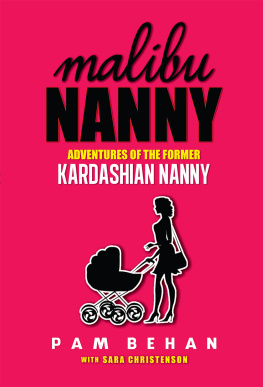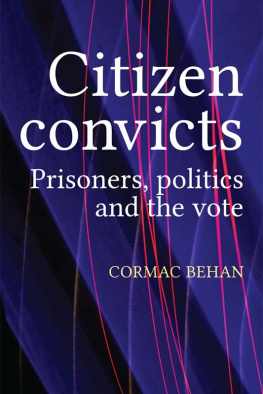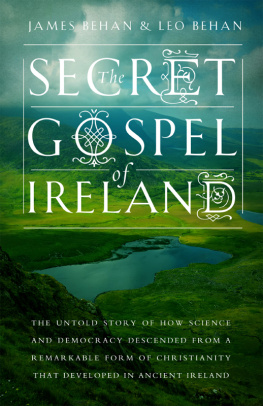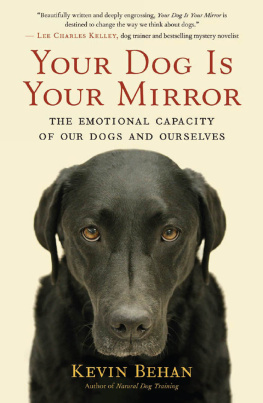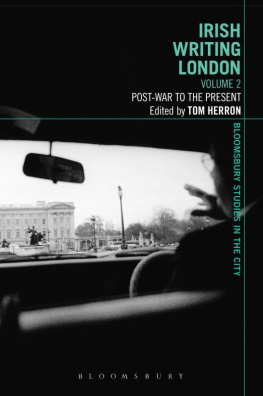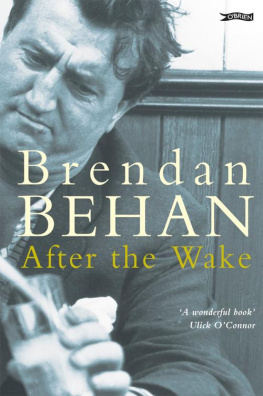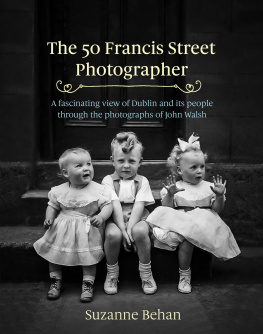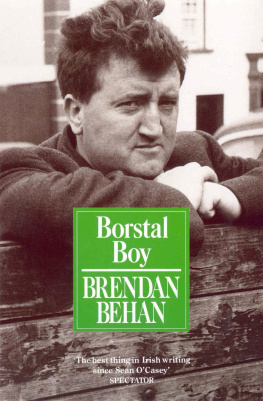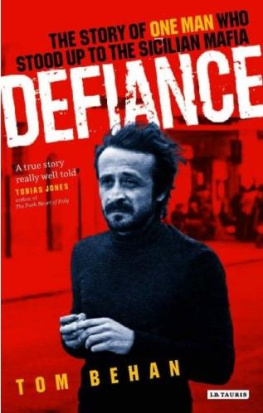About the Book
I have him bitched, balloxed and bewildered, for theres a system and a science in taking the piss out of a screw and I'm a well-trained man at it.
So writes Brendan Behan, poet, writer and literary legend, of the episode that coloured his life. Arrested in Liverpool as an agitator for the IRA, he was tried and sent to reform school. He was sixteen years old.
The world he entered was brutal and coldly indifferent. Conditions were primitive, and violence simmered just below the surface. Yet Brendan Behan found something more positive than hate in Borstal: friendship, solidarity and healing flashes of kindness. Extraordinarily vivid, fluent, and moving, this is a superb and unforgettable piece of writing. Borstal Boy was adapted into a film in 2000.
About the Author
Brendan Behan was born in Dublin in 1923. A member of the I.R.A., he was sentenced to three years in Borstal in 1939, and to fourteen years by a military court in Dublin in 1942.
He became a dominant literary figure almost overnight with the 1956 production of his play The Quare Fellow, based on his prison experiences. This recognition was reinforced by the success of Borstal Boy and his second play, The Hostage.
Brendan Behan described his recreations in Whos Who as drinking, talking, and swimming, but no factual description could do justice to his flamboyant, larger-than-life character. Generally regarded as irreverent and unpredictable if not actually dangerous, there was nonetheless no publicity which ever obscured his marked talents or his great understanding of human nature.
Brendan Behan died in 1964.
Contents
Borstal Boy
Brendan Behan

Do Mo Bh.
FRIDAY, IN THE evening, the landlady shouted up the stairs:
Oh God, oh Jesus, oh Sacred Heart. Boy, theres two gentlemen to see you.
I knew by the screeches of her that these gentlemen were not calling to enquire after my health, or to know if Id had a good trip. I grabbed my suitcase, containing Pot. Chlor, Sulph Ac, gelignite, detonators, electrical and ignition, and the rest of my Sinn Fein conjurors outfit, and carried it to the window. Then the gentlemen arrived.
A young one, with a blonde, Herrenvolk head and a BBC accent shouted, I say, greb him, the bestud.
When I was safely grabbed, the blonde one gave me several punches in the face, though not very damaging ones. An older man, in heavy Lancashire speech, told him to leave me alone, and to stop making a of himself.... There were now two or three others in the room, and this old man was the sergeant and in charge of the raid.
He took some Pot. Chlor and sugar out of the case, put it in the empty fireplace and lit it with a match. It roared into flame and filled the room with smoke. He nodded to me and I nodded back.
Saxonhead and another, a quiet fellow, had me gripped by the arms.
Got a gun, Paddy? asked the sergeant.
If Id have had a gun you wouldnt have come through that door so shagging easy.
He looked at me and sighed, as if I had said nothing, or as if he had not heard me.
Turn him over, he told the quiet one.
Blondie began to search me with violence.
No, not you, said the sergeant, Vereker.
Vereker searched me, quietly, and, even along the seams of my flies, with courtesy.
Lift your arms up over your head. Put your leg up. Thank you.
From an inside pocket he took my money, a forged travel permit, and a letter which happened to be written in Irish.
It was from a boy in Dublin who was sick in bed and wanted me to come and see him. He was a dreary bastard in any language, and I, a good-natured and affectionate boy, found him distressing to meet and embarrassing to avoid. I would have a good excuse for not meeting him for some time to come.
The blonde studied the Gaelic writing over Verekers shoulder.
Disgusted, he turned to me and shouted, You facquing bestud, how would you like to see a woman cut in two by a plate-glass window?
I would have answered him on the same level Bloody Sunday, when the Black and Tans attacked a football crowd in our street; the massacre at Cork; Balbriggan; Amritsar; the RAF raids on Indian villages. I had them all off, and was expecting something like this. But the sergeant said in a reasonable tone:
Well, Paddy, there are people gathered round this house, and I dont think they mean you any good. He laughed a bit. But take no heed of them. Well get you to the Assizes all right. Safe and sound.
Vereker released my arm and went to the window. Uniformed men are making them move along.
The sergeant told Blondie to let me go.
Well sit here a while, he said, sitting on the side of the bed, grunting. He pointed and I came over and sat beside him.
I wish to Christ I was your age, Paddy, Id have something better to do than throwing bombs around. How old are you?
Im sixteen, and Ill be seventeen in February.
So they sent you over here, you silly little twerp, while the big shots are in America, going around spouting and raking in the dollars and living on the fat of the land.
Sean Russell, Chief of Staff of the IRA, was in the United States.
Vereker offered me a cigarette.
Maybe hed like one of his own. Give him them back. Theyll take them off him soon enough in the Bridewell.
He lit a pipe and Vereker and I smoked cigarettes. Blondie stood and did not smoke or say anything.
The sergeant pointed his pipe at the case. Youre a silly lot of chaps, going on with this lot. You dont even know why youre bloody well doing it. Its supposed to be about Partition. About the Six Counties. Well, Ive interviewed a lot of your fellows, and God blind old Reilly if one of them could even name the bloody things. Not all six, they couldnt. Go on, now, you. The whole six, mind.
I began. Antrim, Armagh.
The sergeant counted on his fingers. Right, thats two youve got.
Down, Derry, and Fermanagh and...
Right, five you got. Come on, the last one.
Down, Derry, and Fermanagh... and...
There you are, Paddy, what did I tell you? He shook his head triumphantly.
I left out County Tyrone for he was a nice old fellow.
After a while Vereker had another look through the window and said that we could go, that there werent so many people outside the house.
The sergeant undid the buttons of my pants, and I held them up with my hands in my pockets, going down the stairs.
Outside, as we got in the car, a few people shouted:
String the bastard up. Fughing Irish shit-ouse.
It was an Orange district, but I think some of them were Liverpool-Irish, trying to prove their solidarity with the loyal stock.
In the car the sergeant said: That landlady of yours wont have a window left in her house tonight. Theyll probably give the lodger a kicking and all.
That was the least of my worries. The landlady was a mean woman from the Midlands. I dont mean that coming from the Midlands caused her meanness. Youll get good people from there, or from any airt or part of the world, but if Cockneys or a Siamese are mean or decent, theyll be mean or decent in a Cockney or a Siamese way.
This landlady was mean and as barren as a bog. Her broken windows would be a judgement on her for the cheap sausages and margarine she poisoned her table with, for she was only generous with things that cost little in cash, locking hall doors at night time and kneeling down to say the Rosary with the lodger and her sister, who always added three Hail Marys for holy purity and the protection of her person and modesty, so that you would think half the men in Liverpool were running after her, panting for a lick of her big buck teeth.


